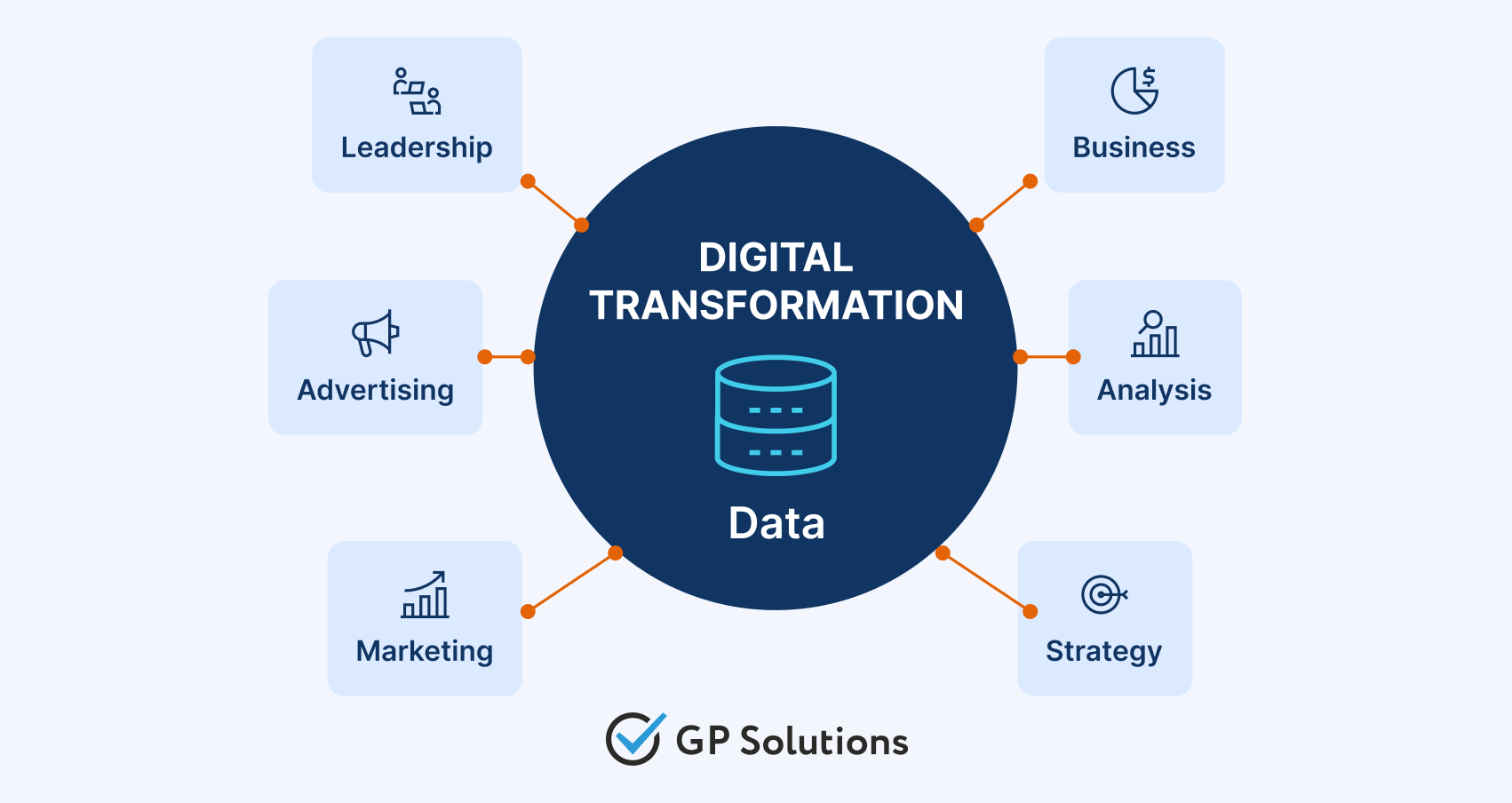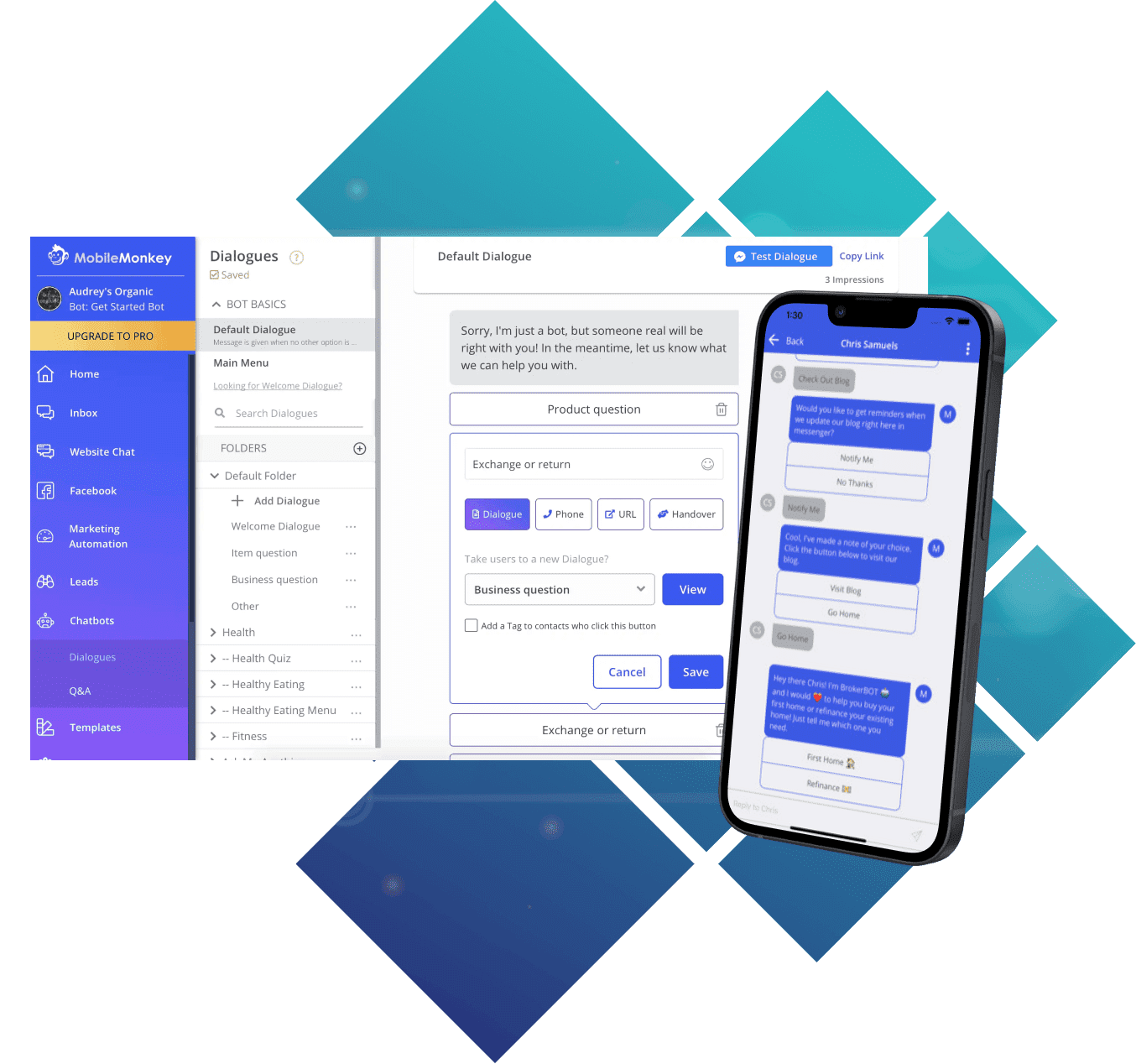Digital transformation as a term is very broad and modern businesses do not always understand it right. Some might think it’s a standardized, one-for-all activity. Others may view it through the prism of trendy requirements: “We need it because others invest in it.”
Meanwhile, digital transformation boils down to refining a firm’s operations and clientele satisfaction with custom-tailored software solutions, which is crucial for increasing competitiveness. Regarding the cost, with correct project estimates, diligent planning, and ethical implementation, digital transformation for enterprises cannot be too expensive because it returns the investment by making the business earn more.

“Looking for qualified help in running your digital transformation strategy? — Talk to us!”
What is digital transformation actually?
Generally speaking, digital transformation stands for applying digital technologies for transforming business operations, workflows, customer journeys and experience. It entails the integration of digital tech into various business aspects, such as sales, marketing, operations, and customer service. The ultimate goal here is to enhance efficiency, minimize expenses and provide a redefined experience for the end customer.
according to recent forecasts, global digital transformation spending is expected to reach 3.4 trillion U.S. dollars by the year 2026. This directly proves the fact that software engineering has grown into the need of the hour for successful and dynamic businesses. By investing in advanced solutions companies are now reaching their pursued goals, save time and increase income significantly.

The role of software development in digital transformation
Software development is a crucial element of digital transformation. It allows companies to build custom software tailored to meet specific requirements and needs facing them in day-to-day operations. It is the key to set up automated business processes, make the business more efficient and customer-centric. Software development is also essential in enabling businesses to integrate digital technologies into all aspects of their operations.

Changes brought by digital transformation in the software development industry:
With the growing demand for custom software solutions from organizations of all sizes, the software digital transformation industry is gradually evolving. Here are some of the changes that digitalization brought to the software development industry:
Low-code development
Organizations have now adopted the low-code development approach that helps them to develop customized applications through pre-arranged blocks, thus eliminating the requirement for hand coding. This helps businesses to get their software development process accelerated and develop new apps in the least possible turnaround time.
The low-code development is one of the best strategies for small organizations and startups who are new to the digital transformation journey for developing custom software and applications. This also helps in lowering the cost of development and ensures minimal time for project completion.
Mobile-first approach
90% of global internet users utilize a smartphone or mobile device. Not only this but it was also estimated that nearly 57% of global internet traffic was generated from smartphones as compared to 43% of traffic generated from laptops or desktops in the year 2022. Considering the significant popularity of mobile web browsing, businesses are now considering and privatizing the mobile-first approach.
The mobile-first approach means building mobile-based applications in software and then scaling those for desktop devices. This strategy allows the companies to expand their customer base, thus boosting their brand loyalty through a great digital experience.
Better integration
More and more companies are now increasingly scaling their businesses by shifting to mobile and cloud technologies. Software that is custom-built can get seamlessly integrated with the mobile and cloud performs with minimal downtime.
Proper integration during the software development lifecycle stage, can help businesses to gain a much-needed competitive advantage to the business.
Identifies risk and improvement areas
Digital transformation comes with a host of benefits but it also has the potential of driving risks. These risks are likely associated with bugs and errors that can cause operational disruptions. Such disruptions affect tech companies leading to greater cost generation and unfulfilled tasks.
An efficient way of identifying such inefficiencies and other improvement areas is by deeply analyzing the code repositories. Few platforms can offer you the visibility of Git providers while utilizing a pattern-matching engine.
Agile data-driven management
Agile data-driven management fosters business intelligence and flexibility. To attain this, tech leaders focus on automated performance, reporting, and managing the entire team activity.
In this context, tools that offer access to the core engineering metrics can help tech leaders in achieving great results that transform business operations. Another key element is visibility over works that can access and improve your team’s performance level.
API-first approach
Application Programming Interface (API) allows multiple applications to communicate seamlessly with each other. With an API-first approach, the custom software developers create apps for interacting with other software and applications easily.
Increased productivity and efficiency
processes in streamlining operations. For instance, robotic process automation (RPA) can easily outperform humans in many ways. Research says that bots can complete tasks almost 20 times faster than human beings.
The Cost of Digital Transformation
Obviously there can be no universal price for digital transformation activities. As already mentioned above, it’s not a standardized procedure. Thus, the pricing may differ based on the scope of transformation and specifications. For instance, you might want to automate a particular process as part of your business operations or you can also attempt to run a complete rehaul of your business routines. So, the total budget will change in accordance with the scope of work.
It often happens that enterprises might be scared to explore new software development ventures. However, there’s considerable pressure from the competitors who thereaten your current ways to become irrelevant in the near future. However, there is no need to hurry. Digital transformation decisions need to be properly considered and balanced in order to reach overal success.
Digital Transformation for Enterprises: Benefits
Now that we’re done talking about prices let’s elaborate upon the value an investment in digital transformation brings to businesses.
Optimized Workflows
Here’s a good analogy: try thinking of digital transformation as a race. First, you and your competitors run at the same speed, as all the vehicles have the same engines, designs and drivers that share similar experiences. Then, all of a sudden, one racer gets an engine twice as powerful as the remaining competition along with an autopilot which eliminates the need for a driver and frees the crew from boring tedious tasks. In this case there is a %99.9 the upgraded car will win. That’s the principle of digital transformation: it makes businesses work faster and perform better on every step of the way.
Bolstered Business Intelligence
We won’t talk about races here. But you do need to be aware of all the bumps and sharp turns on the road. Digital solutions incorporated into daily business routines help companies fully leverage the benefits of raw operational data by turning them into duly visualized and structured reports and insights. Harnessing the power of data makes enterprises proactive and overal much better in handling risks and opportunities.
Enhanced Customer Experience
Digital transformation can run on both on the exterior and interior of your business. Yet, even if you only improve the hidden underlying processes, they will still enhance the external part of your business and give it more competitive advantages. Running omnichannel customer care in this respect is one of the best decisions a company can make to boost sales and overall performance.
Cutting Operational Costs
Optimizing the operational costs is crucial. This is one of the best ways increase performance, letting the company free up lots of funds by eliminating various costs spent on hiring, salaries and so on. For instance, incorporating Robotic Process Automation in your business processes can lead to a cutdown of up to an up to 80% cut down in an enterprise’s processing cost. The only task remaining here is to track down a proper tech partner who can identify the operational areas needing automation and implement the required solutions.
Final thoughts
Sure enough, one cannot embark upon the digital transformation of their enterprise with no long-term strategy and expect it to succeed. However, suppose an enterprise gets a solid tech partner who can get them from ideation to implementation with due regard and diligence to the company’s business needs and context. In that case, it is improbable that your digital transformation project won’t pay back.



















